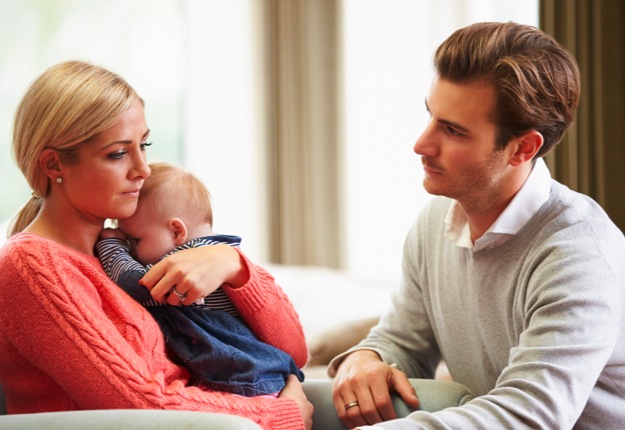Perinatal depression, in case you don’t know, is a depression that is diagnosed during pregnancy or in the first year after a baby’s arrival.
Perinatal Depression affects 1 in 10 women during pregnancy and 1 in 7 women in the postnatal period.
I suffered for 3 years back in 2008 – 2011, it started after the birth of my daughter and continued on throughout my pregnancy with my son.
What is important to note is that it did not continue after the birth of my son in 2011.
For three(ish) years I struggled with guilt, sadness, disappointment, fear, loneliness and shame. I failed to feel connected to my daughter and later my son while I was pregnant. I hid from those in the world who loved me and wanted to help.
I was in a particularly black hole and one I did not (at the time) know how to get out of.
That three year journey taught me more about myself than anything I did up till that time and anything I have done since. It taught me:
- I am strong. Even in my worst moments, I am strong enough to overcome anything.
- I am loved. My husband is my rock and my daughter broke through the blackness on occasion with the most beautiful smiles just for me.
- I am supported. There were people around me who bent over backwards to help me, when they knew what I was going through.
- I am a great mother. Even in my darkest hours and days, I was the person my daughter needed. I was the right person for her and she was the right baby for me (even if I found it hard to see at the time).
- I was not alone. Talking about it enabled me to discover the support of others going through it at the same time.
- It is not something to be ashamed about. It is an illness not a weakness and one you can recover from.
- My expectations were too high. There was no way reality could match up to my expectations, and when it fell short I felt cheated and disappointed. I questioned my abilities as a mother because my baby did not fit the ‘normal’ of the baby books.
- Medication is not the only route to recovery. That is not to say there is no place for medication, there is and if it works for you then take it. There are also many complementary and alternative therapies and practices which can be used in conjunction with medication to help you recover faster.
- Never give up. I wanted a different experience after the birth of my son and I found ways to make it work.
- It is always OK to cry. There is support out there on Facebook and through your communities to hold and help you on the tough days, just go looking for it.
- It takes time. It is not possible to snap out of it, recovery takes time but it is does happen.
If you have been diagnosed with perinatal depression, or believe you are suffering from it, I want you to take heart. There is a way out of the darkness for you and you will find the right direction in time.
When you find your way into the light it will not be the same light as before. It will be different and infinitely more beautiful for the struggle it took to get you there.
If you think that you could be suffering from perinatal or postnatal depression, please visit your doctor or refer to Gidget Foundation, PANDA or Black Dog Institute for guidance.
Have you suffered from perinatal or postnatal depression before? What did you do to overcome it? Please share in the comments below.




















10:28 am
2:47 pm
12:29 am
7:38 am
8:09 pm
11:34 am
8:06 pm
5:51 pm
1:00 pm
8:55 pm
-

-
-
mom94125 replied
- 17 Oct 2015 , 3:25 pm
Reply10:07 pm
6:02 am
9:55 pm
9:41 pm
2:55 pm
1:00 am
-

-
-
Parent Academy replied
- 02 Sep 2015 , 11:20 am
-

-
-
mom94125 replied
- 15 Oct 2015 , 1:31 pm
Reply6:26 pm
12:27 pm
10:28 pm
8:14 pm
-

-
-
Parent Academy replied
- 02 Sep 2015 , 11:22 am
Reply- 1
- 2
- »
Post a commentTo post a review/comment please join us or login so we can allocate your points.